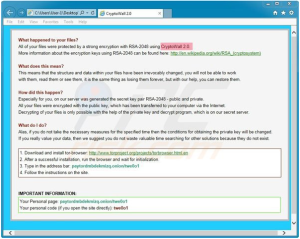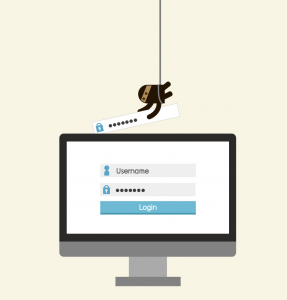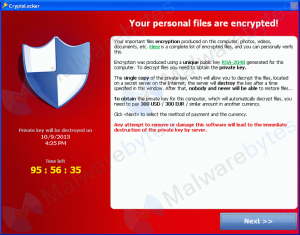Remember that Cryptolocker virus that was affecting computers earlier this year? It was a type of ransomware that restricts access to the computer and demands a high-dollar ransom in order for the creators of the virus to remove the restriction. We hate to say it but this has gotten worse. With Cryptolocker it was possible to get your files back but with this new variation of the virus you pay ransom or lose everything.
CryptoWall Virus
 The CryptoWall virus infects computers through email messages and illegitimate downloads. After the virus is on your computer it will encrypt all of the files stored on the hard drive making them impossible for you to access. In order for you to get the files back the creators are demanding a ransom of $500 to decrypt them. This virus is especially dangerous for Windows users with Windows XP, Windows Vista, Windows 7, and Windows 8 operating systems. Although it is relatively simple to remove the virus, it is impossible to decrypt the files without paying the ransom.
The CryptoWall virus infects computers through email messages and illegitimate downloads. After the virus is on your computer it will encrypt all of the files stored on the hard drive making them impossible for you to access. In order for you to get the files back the creators are demanding a ransom of $500 to decrypt them. This virus is especially dangerous for Windows users with Windows XP, Windows Vista, Windows 7, and Windows 8 operating systems. Although it is relatively simple to remove the virus, it is impossible to decrypt the files without paying the ransom.
When someone encrypts your files it means that they have completely changed the structure of your data making it impossible to work with, see, or use. When files are encrypted you are basically losing them forever without the decryption code.
How to Protect Your Files
The team at Flex Technology Group has had to tell over 30 people in the last month that they have lost all of their data without hope of getting it back. Don’t let that happen to you. Take these tips to avoid infecting your computer with the CryptoWall virus.
- Know how to identify suspicious emails in your inbox
- Install anti-malware software
- Don’t use unreliable video players
- Only update Flash though Adobe
Contact the team at Flex Technology Group to get more information on the CryptoWall virus and get your questions answered about any suspicious activity on your computer. We can also help with providing and installing anti-malware software.

